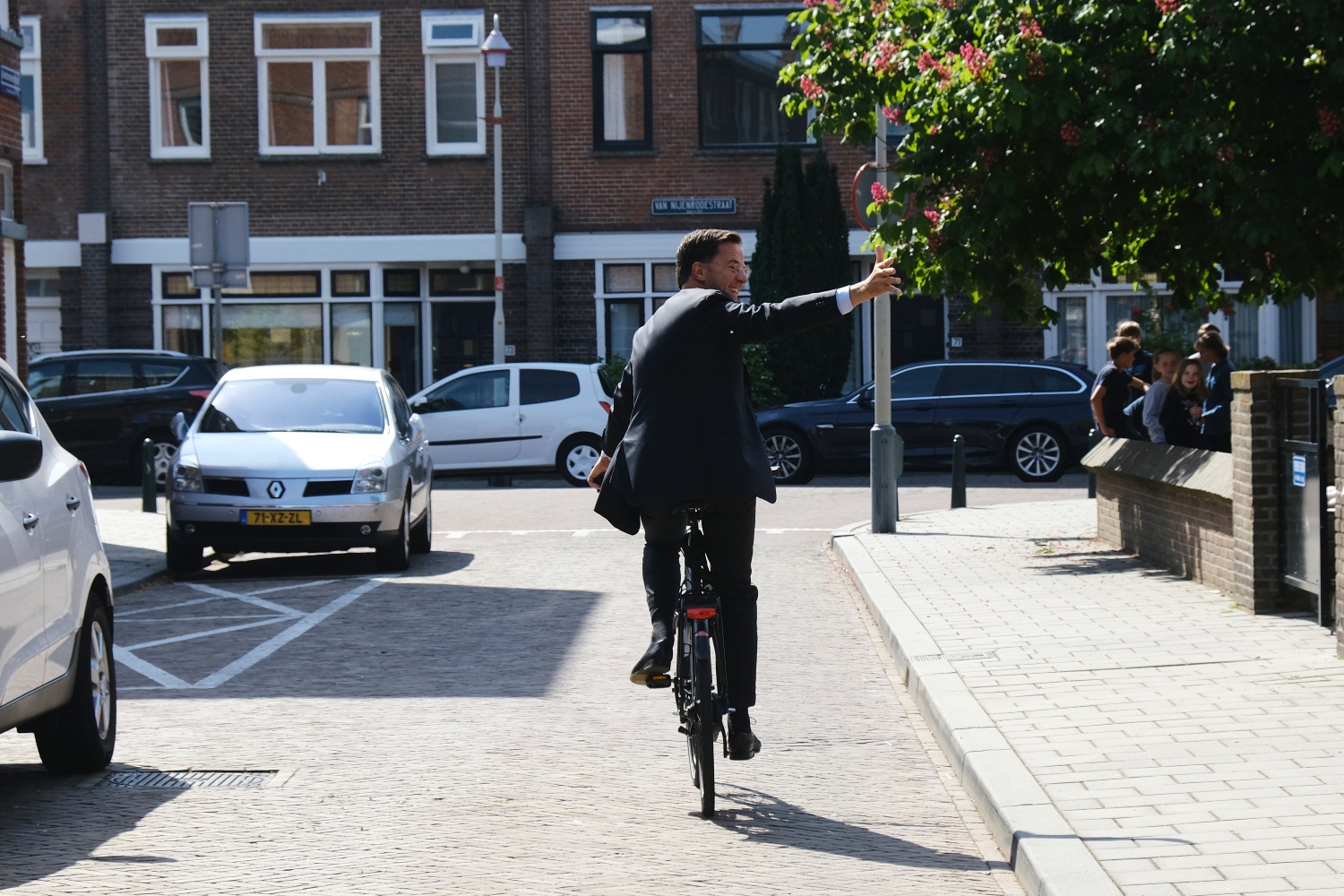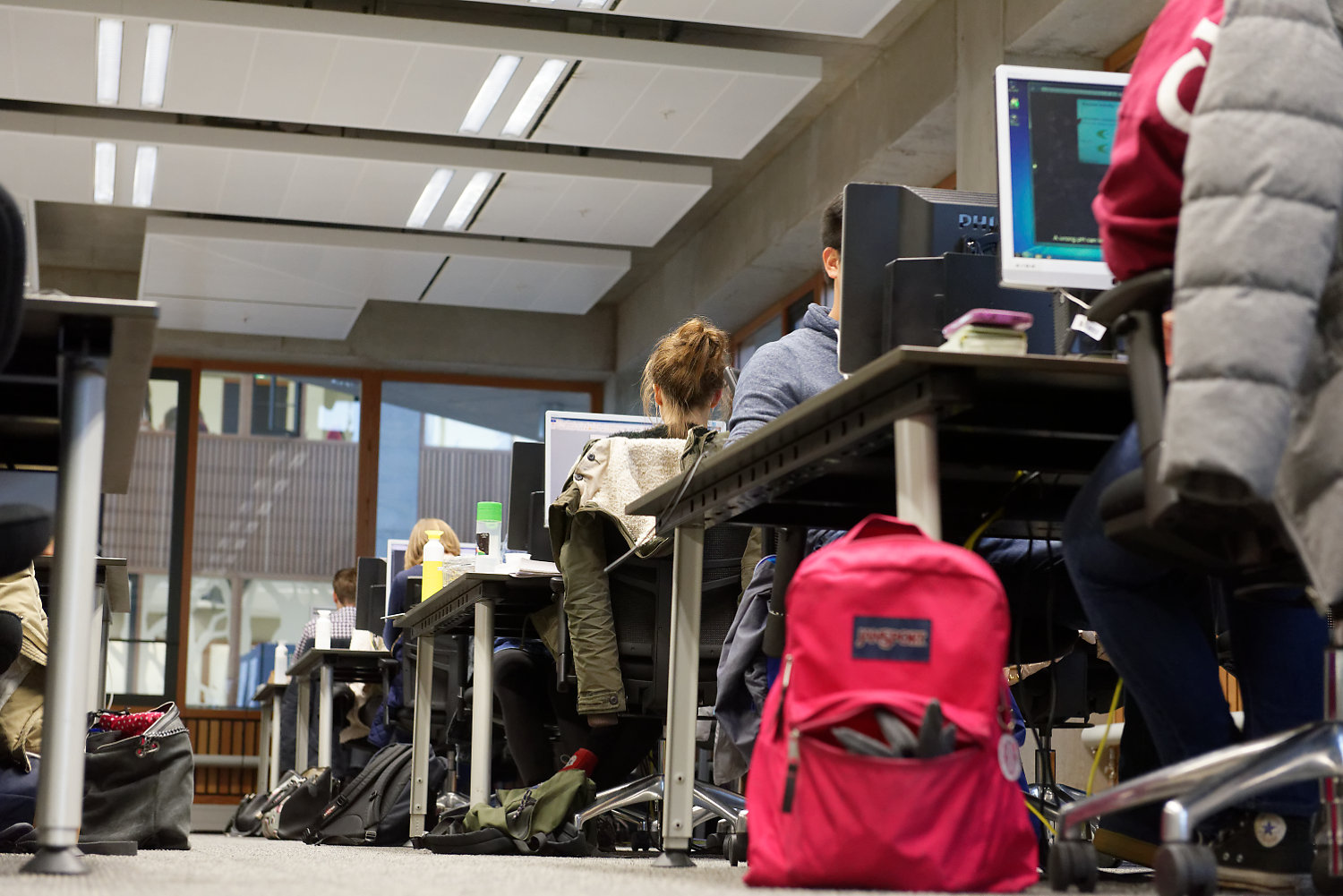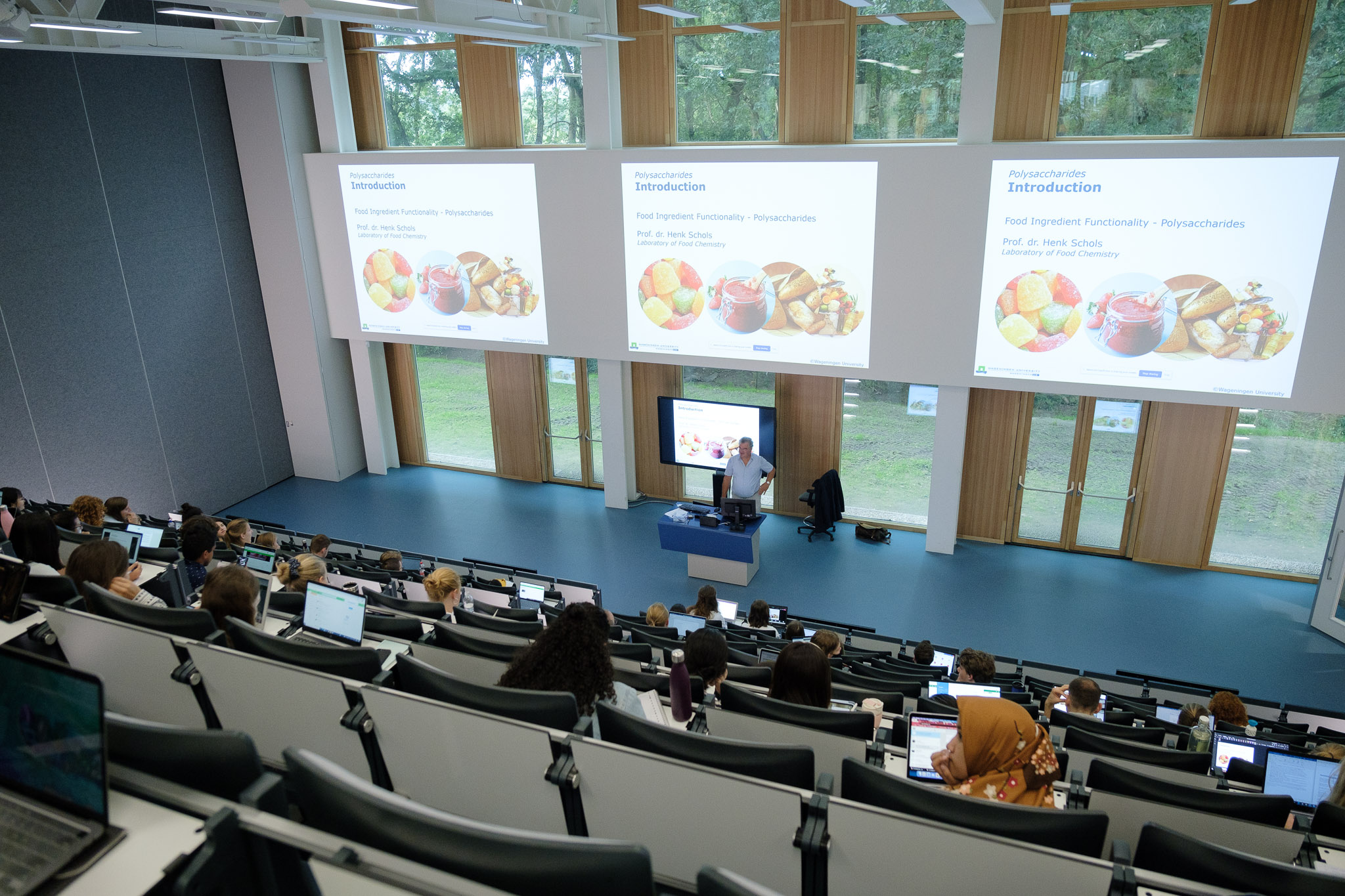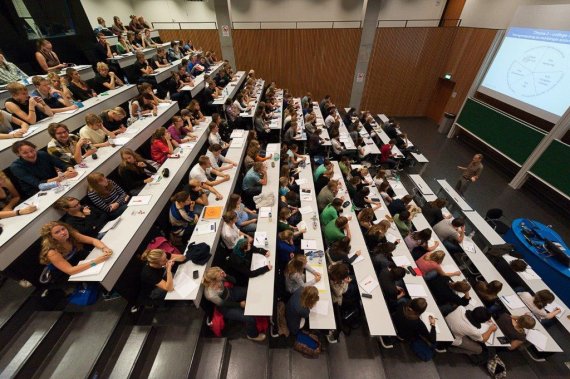Prime Minister Mark Rutte stepped down. He is no longer available as VVD party leader for the coming elections, he stated Monday. What was his impact on higher education?
Mark Rutte writes history as the longest-serving Prime Minister of the Netherlands, surpassing Ruud Lubbers and Willem Drees. His name will remain linked to the covid crisis, the supplements scandal, the damage caused by gas mining in Groningen and apologies for slavery.
On the eve of his Prime Ministership in 2010, the world looked a lot different than it does now. The VVD frontman called his greatest political faux pas at the time ‘calling on students to occupy university buildings in 2005, as undersecretary of education, he told NRC daily paper.
Ribbon, coffee
That was certainly a memorable moment. As undersecretary of education (2004-2006), Rutte enjoyed stirring up the dust. In Netwerk news programme, he said that if students were unhappy with the education they were receiving, they should occupy a faculty for a few days. ‘There are enough practical means to do so. You need some ribbon and find the circuit board and so on. I’ll explain everything.’ He was happy to stop by for coffee.
Shortly thereafter, students occupied the Amsterdam Maagdenhuis in protest against Rutte’s own plans. And no, he did not stop by. The property was cleared, and the protesters were fined. In response, the student organisations filed a complaint against Rutte for sedition, as he was the one who called for an occupation.
Gusto
How did it come to this? As an undersecretary of education, Rutte was not afraid of making enemies. He wanted Begeisterung (gusto), he said, because he saw too little of this. He made every conceivable effort to stimulate managers. He attempted to launch a bureaucracy meter (to deal with overhead expenses) and called for a ranked list of good and bad education institutes. ‘To impact the managers’ ego’, he said.
But that was mostly hullaballoo. His plans for big changes in higher education were the most significant. He wanted a stricter preselection for programmes and variable tuition fees. Excellent programmes could increase their fees. He encouraged competition between universities and university colleges. ‘You can only sell an A-grade product if the quality is excellent.’
Learning rights
Rutte’s plan for learning rights was even more fundamental. Higher education funding should follow the students, he felt. They were to receive coupons that could be redeemed at universities and university colleges. Not happy with the education you are receiving? Vote ‘on the run’ and go study elsewhere. That would force institutes to offer higher-quality education.
It would also encourage students to make haste. Two years of delay were permitted before your learning rights expired and the student would have to pay. That last idea was ultimately re-introduced as the long-study fine for slow students. Both proposals failed to be implemented, both times due to the fall of the coalition government.
Basic grant
A proposal that did make it was the abolition of the basic grant from September 2015. At the time, Rutte was no longer undersecretary but Prime Minister. His cabinet of VVD and PvdA (Rutte II) made a deal with opposition parties D66 and GroenLinks. Students would no longer receive a basic grant but would have to take out a loan instead. However, the supplementary grant was raised, and the repayment conditions were eased.
That, too, did not become a big success. A change of course followed eight years later: students will once again receive a basic grant as of September 2023, and the generations of students who had to take on debts will receive a small compensation.
Fraud
Under the watchful eyes of Ruttem, the war on fraud within the government gained traction, with the supplements scandal as a terrible example. Higher education now has a similar scandal: inspections on grants for students living independently are conducted almost exclusively among students with a migration background, and the evidence used is sometimes sorely lacking. PvdA Minister of education Roland Plasterk set up these inspections, and the basic grant was abolished by PvdA Minister Jet Bussemaker. Nonetheless, both matched Rutte’s views seamlessly.
Now what?
Rutte IV has fallen. The question now is how this will affect higher education and research. A wind of change blew under Minister Robbert Dijkgraaf. He wanted to lower the standard for the binding study advice to prevent stress among students. That is a typical example of a topic for which Rutte has little affinity.
Dijkgraaf also made his mark on the distribution of hundreds of millions in research funds. No more competing for research funds, but grants that the universities can distribute as they see fit.
So, after years of neo-liberal policies, Dijkgraaf was able to slightly alter the super tanker’s course. Likely not as much as he would have liked, he was working on an extensive perspective for the future that could include changes in how higher education is funded.
Dijkgraaf will now have to leave possible changes to the next cabinet, with him in it or not.
HOP, Bas Belleman

 Alexandros Michailidis Shutterstock
Alexandros Michailidis Shutterstock 

